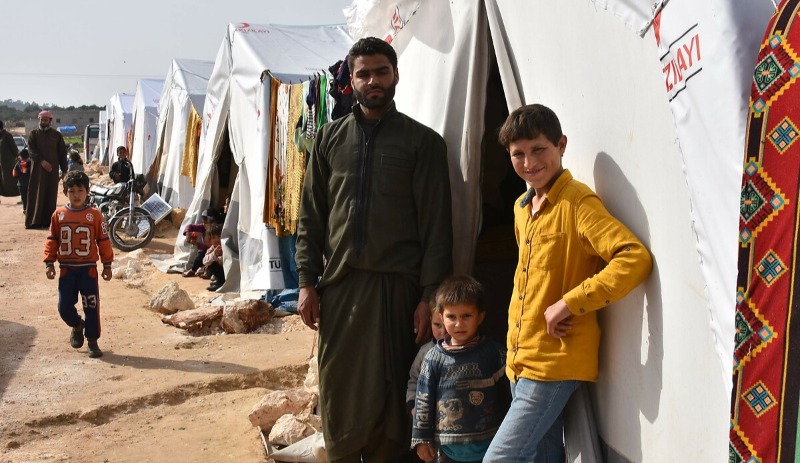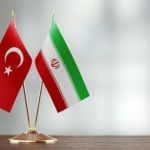Human Rights Watch on Monday called on the European Union to recognize Turkey as “unsafe” for asylum seekers, blaming Ankara of “arbitrarily arresting, detaining, and deporting” hundreds of Syrian refugees unlawfully.
HRW also urged the European Commission to publicly report Turkey’s actions of “forcing or coercing the signing of ‘voluntary return’ forms in removal centers, including those which received EU funding.”
“In violation of international law Turkish authorities have rounded up hundreds of Syrian refugees, even unaccompanied children, and forced them back to northern Syria,” said Nadia Hardman, refugee and migrant rights researcher at Human Rights Watch.
“Although Turkey provided temporary protection to 3.6 million Syrian refugees, it now looks like Turkey is trying to make northern Syria a refugee dumping ground,” she said.
Turkey is home to the largest Syrian migrant population in the world, who fled Syria following a civil war broke out in 2011. In 2016, the EU signed a deal with Ankara aiming to cut the influx of Syrians arriving into Greece, promising the allocation of 6 billion euro in aid to Turkey be used for projects to help migrants.
In May, Turkish President Recep Tayyip Erdogan announced a plan to facilitate the voluntary return of some 1 million of them to Syria.
Last week, Turkish Interior Minister Suleyman Soylu said so far 529,000 Syrian refugees have returned to their country.
Human Rights Watch said between February and August, it interviewed 37 Syrian men and 2 Syrian boys who had been registered for temporary protection in Turkey. The organization also said that it interviewed seven relatives of Syrian refugee men and a refugee woman whom Turkish authorities deported to northern Syria during this time.
HRW said that Turkish officials arrested Syrians in their homes, workplaces, and on the street, detained them in poor conditions, beat and abused most of them, forced them to sign voluntary return forms, drove them to border crossing points with northern Syria, and forced them across at gunpoint, citing deported refugees.
Many said that they saw Turkish officials beat other men who had initially refused to sign, so they felt they had no choice, HRW said.
Two men detained at a removal center in southern Adana said they were given the choice of signing a form and going back to Syria or being detained for a year, according to HRW.
Deportees were driven to the border from removal centers, sometimes in rides lasting up to 21 hours, handcuffed the whole way, the HWR said.
All interviewees said Turkish officials in the removal centers either assaulted them or they witnessed officials kicking or beating other Syrians with their hands or wooden or plastic batons, HWR said.
Many deportees said Turkish officials used violence or the threat of violence to force them into signing “voluntary” return forms, it said.
In the report, the Human Rights Watch made recommendations to both Turkey and the EU.
Recommendations to the Turkish government:
• End arbitrary arrests, detention, and deportation of Syrian refugees to northern Syria.
• Ensure that members of security forces and immigration officials do not use violence against Syrians or other detained foreign nationals and hold any officials using violence to account.
• Independently investigate actions to force, deceive, or falsify the signing or imprint of migrants’ fingerprints on “voluntary return” forms.
• Allow the Office of the United Nations High Commissioner for Refugees (UNHCR) to freely access removal centers, monitor the process of obtaining Syrians’ permission to return them to Syria to make certain it is voluntary, and observe interviews and removal procedures to ensure that police or immigration officials do not use violence against Syrians or other foreign nationals.
Recommendations to the European Comission:
• Publicly clarify that Turkey is not a safe third country under the criteria set out in Article 38 of the EU Asylum Procedures Directive.
• Press Greece to repeal the Joint Ministerial Decision deeming Turkey a safe third country, and should it fail to do so in a reasonable time frame, pursue legal action.
• Publicly call on Greece to re-examine all inadmissibility decisions based on the safe third country concept in relation to all Syrian asylum seekers.
• Ask the European Union’s Agency for Asylum to prepare a new Turkey Country of Origin report relevant for safe third country designation and ensure that this includes the situation of third country nationals in Turkey, including people transiting through or seeking international protection in Turkey.
• Make any EU funding of removal centers contingent on full and unhindered access of UNHCR and EU monitoring staff and other independent observers, including access to interview detainees to assess the voluntariness of return.
• Develop a public human rights impact assessment and press Turkey to allow an independent reporting mechanism to ensure that EU funding for border management and for Turkey’s removal centers does not contribute to or perpetuate human rights violations.
• Report publicly, including in the context of the annual report on Turkey, on Turkish authorities’ actions to deport Syrian refugees unlawfully and to force or coerce the signing of “voluntary return” forms in removal centers, including those which received EU funding.
• Publicly call on Turkey to stop the deportations and allow UNHCR to monitor whether detained Syrians wish to remain in Turkey or voluntarily return to Syria.
Source:gerceknews



